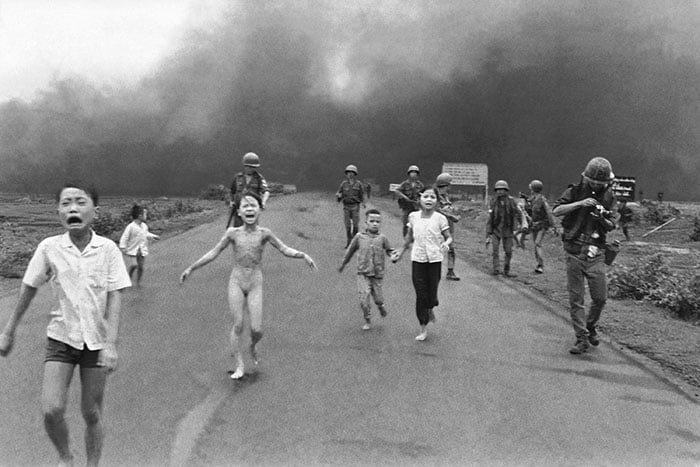Facebook Updates Censorship Policy to Avoid Another ‘Napalm Girl’ Issue
![]()
Facebook’s rigid content restrictions and community standards are softening a bit today, and it’s all because of Nick Ut and his Pulitzer Prize-winning photograph Terror of War, known by many as “Napalm Girl.”
You may remember that Ut’s photograph was at the center of a massive controversy after Facebook repeatedly censored the image—first, after it was posted by Norwegian writer Tom Egeland alongside six other photos he said “changed the history of warfare”; then as part of an open letter from Norway’s largest newspaper to Mark Zuckerberg about the inappropriate censorship.
Facebook did later reinstate the photo, and apologies were made, but it wasn’t until three days ago that an official policy change was made. Now, graphic photos like Napalm Girl will be allowed by Facebook’s community standards because they’re considered “newsworthy.”

Facebook explained the new policy in a statement written by VP Global Public Policy, Joel Kaplan, and VP Global Operations & Media Partnerships, Justin Osofsky.
“Observing global standards for our community is complex,” begins the statement, describing the line Facebook is having a hard time toeing. “Whether an image is newsworthy or historically significant is highly subjective. Images of nudity or violence that are acceptable in one part of the world may be offensive—or even illegal—in another.”
Nevertheless, they’ve learned from the Napalm Girl controversy and are making a change.
“In the weeks ahead, we’re going to begin allowing more items that people find newsworthy, significant, or important to the public interest—even if they might otherwise violate our standards,” they explain. “We will work with our community and partners to explore exactly how to do this, both through new tools and approaches to enforcement.”
The language leaves room for mistakes, implying that the transition won’t be entirely smooth and everybody won’t be happy even after Facebook finds what they consider to be an appropriate balance. But major censorship controversies like the one surrounding Terror of War are (hopefully) a thing of the past.
(via Engadget)